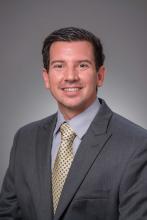
An Interview with Mark Crandall, CIO of Consulate Health Care, the sixth largest provider of senior healthcare services in the United States.
The Enterprisers Project (TEP): Technology has created some dramatic changes in health care. What have been the most important from your observations?
Crandall: As technology, infrastructure, and applications have evolved over the past ten years, we are able to do so much more for our patients at their bedside. We have a platform that ensures wireless network availability and secure communication among our staff, patients, and administrators.
With the point-of-care devices on our EHR platform, there is a wealth of information at the caregiver's fingertips; that information will be shared securely and quickly with other providers across the continuum of care. This translates to more time that our caregivers can spend with our patients. Combine this with exciting opportunities in telemedicine, Consulate will be positioned to save our patients unnecessary return trips to the hospital and keep them comfortable while they are in our care centers.
TEP: How have technology changes created changing needs or roles in your IT organization?
Crandall: Consulate Health Care IT must demonstrate our commitment to these three core drivers while adapting new technologies: better care coordination, better clinical outcomes and the protection of our patients' health information. These drivers require our IT staff to have an understanding of how our marketplace is changing. We invest time in re-educating our IT staff where it helps them apply emergent technologies in a way that is congruent to business objectives and our core drivers.
In addition to our corporate staff, we have an extended network of thousands of caregivers employed by Consulate augmented with third-party physician's groups that require access to our network in order to best serve our patients. The technology available now may be completely new to some of our practitioners, so it is our duty to be sure that our employees have access to computer-based training and on-site training as necessary to get the most benefit from the tools that we are able to provide.
TEP: Although there have been dramatic changes in health care already, more are coming as the Affordable Care Act completes its rollout. How is that affecting you at Consulate?
Crandall: We are at a crucial time in Consulate's history. As a company, we need to act with urgency to prepare for the enormous changes in our market. Payment models and regulations are changing and the extent that we are expected to share information securely and efficiently is a significant challenge as the Affordable Care Act impacts our provider partners.
We need to balance our priorities in IT to position Consulate to succeed: if we act too quickly, we chance jeopardizing stability; if we act too slowly, we will see opportunities disappear. Our innovations in IT are required, but that does not lessen the importance of the priority focus that we have to keep our patient data secure. We are constantly looking for the best way to apply emergent technologies on our IT Infrastructure while it remains stable, simple, and secure.
TEP: Any advice you'd offer to other CIOs in the health care space?
Crandall: CIOs in our space know that it is not enough to have a "keep the lights on" mentality. Not only do we have to continue to maintain the security and availability of our infrastructure, we have to take advantage of opportunities to support our operations partners and our caregivers. In the end, our job in IT is to help provide technology and tools (e.g., tablets at the bedside and telemedicine) that allow our caregivers to provide care that just wasn't possible ten years ago. The key is to focus attention on what is needed in our marketplace. This includes emerging technologies at the bedside as well as innovating the connectivity between Consulate and other providers along the care continuum.
When I talk with my peers, we frequently discuss the high expectations our practitioners have of health IT applications, specifically, that they be grounded in secure data communication while providing a workflow that is easy for our practitioners to use. How does this translate for our caregivers and our patients? More and more, health applications are expected to perform and be as usable as the applications that our patients and families have on their smartphones.
This is a tall order — when is the last time that you heard a clinical application called 'sleek and super easy to use?' Compare that to Pandora or Kindle for the iPad. We are going to be looking for our software partners to incorporate a friendly user experience and securely gather data from patients/families/providers. When you combine this with analytics that transform general information into targeted individual decision making, you have the key ingredients for the success of future health applications.
Learn more on security read, "How do CIOs verify security of external systems?"
Mark Crandall is CIO of Consulate Health Care, the sixth largest provider of senior healthcare services in the U.S.




